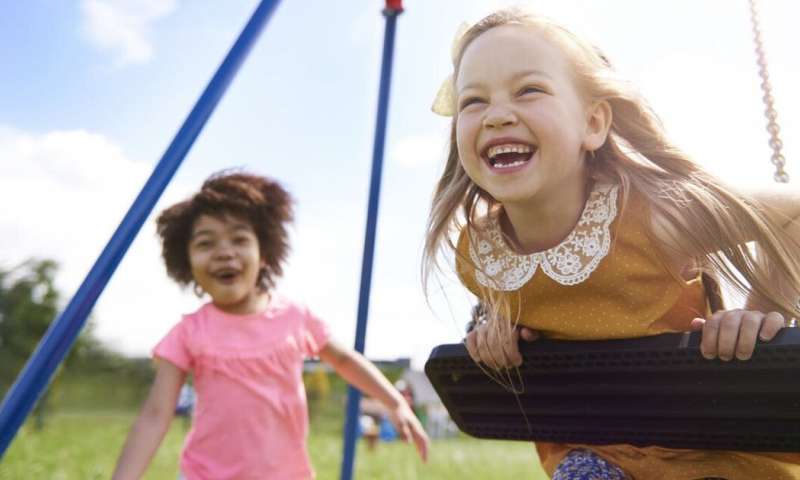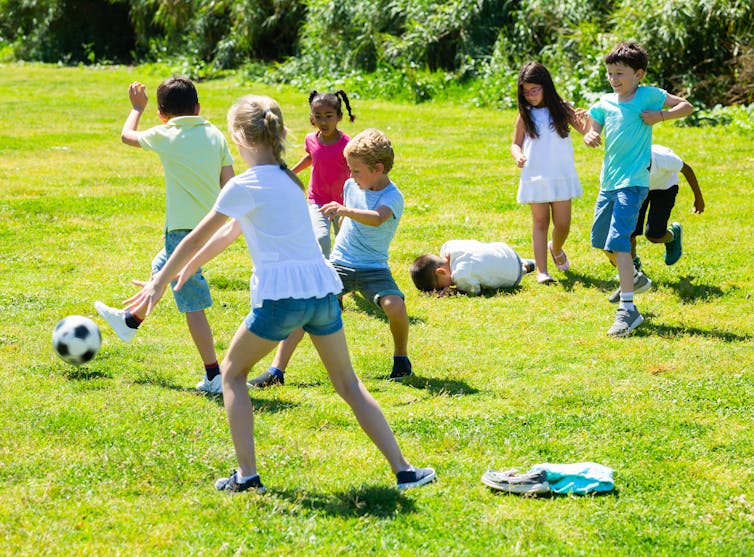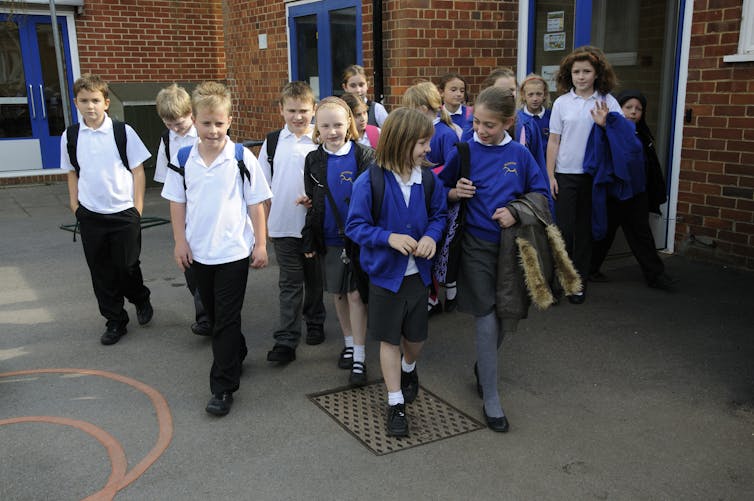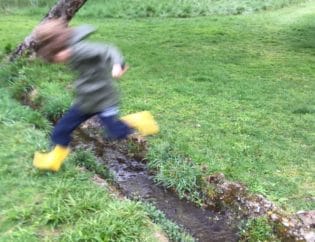
Approximately 1.4 billion children worldwide are currently living under partial or full lockdown as a result of the Covid-19 pandemic. In the UK, and in many other countries across the world, it has been six weeks or longer since children last played, in person, with a friend.
Initial data collected as part of my ongoing research shows that 63% of British parents already perceived their child (aged five to 11 years) to be feeling lonely in the first few weeks of lockdown. We estimate that this is an increase of around 40-50% compared to normal levels. Lockdown is putting children’s mental health at risk.
When lockdown is lifted, children should be allowed to play with their friends as soon as possible. In the meantime, technology provides some ways for children to connect with their peers.
Equal relationships
For social and emotional wellbeing, children need to have the opportunity for all types of play, including play with other children. This peer play is crucially important for children of all ages. Peer relationships are unique because they are voluntary, equal, and require negotiation and compromise.

Play with peers allows children to learn to regulate their emotions, develop social skills and form a sense of identity. Without the opportunity to play closely with their friends, children can feel lonely and socially isolated.
Children who find social situations, school and separating from their parents difficult may be coping relatively well with lockdown, because they do not need to face the situations they find challenging. However, exposure to feared situations is a critical component of overcoming anxiety and fear. This extended period without any exposure may lead to increased fears in these children and make the transition out of lockdown very challenging.
Emotional wellbeing
These challenges to children’s mental health are backed up by the Co-Space study, which focuses on how families are dealing with the lockdown. More than 50% of parents are concerned about their child’s emotional wellbeing and more than 40% felt they would benefit from support for managing their child’s emotions. These rates were even higher for parents of children with special educational needs.
In light of these concerns, as members of a group of mental health experts, we have recently written to ministers calling for children’s social and emotional wellbeing to be prioritised in all decisions relating to the easing of lockdown and reopening of schools.
The loosening of lockdown should be done in a way that allows children to play with their peers as soon as possible (#playfirst). In our open letter, we have also asked that schools focus on encouraging play and supporting children’s social and emotional wellbeing during the transition. Where necessary, individual plans for transitioning children back to school should be developed in partnership with families.

It is likely that parents and children will have some anxiety about how safe it is for children to interact with one another. We also recommend that public health messages to families and education staff provide clear information on the social and emotional benefits of play, particularly outdoor play, and clear guidance on any risks to children’s physical health.
Until lockdown is lifted, parents can help their children maintain playful social contact with their peers via technology. This does not provide all of the benefits of face-to-face social interaction but, while lockdown continues, it can help children remain socially connected. Ideally it should be combined with time outdoors being physically active and, as long as it is permitted, active outdoor play, which has substantial benefits for children’s mental and physical health.
Screen time
Parents often worry about children’s screen time but the evidence does not support the idea that screen time in itself is harmful. Instead, what is important is what children are doing on their screens. If they are using them to engage with and play with friends, the benefits right now are likely to outweigh any risks.
Older children may enjoy video-calling and chatting with friends, while other children may prefer to play games online with friends. Where possible, maintaining some of the structure of their peer groups through group calls or games is likely to be helpful for helping them to maintain their sense of identity as part of the group. Social media can help maintain friendships and provide feelings of connectedness.
For younger children, using technology to maintain contact with friends will be more challenging. For these children, free-play opportunities at home as well as play with parents and siblings will be important for supporting social and emotional wellbeing. This can feel like an added pressure on parents alongside homeschooling and work, but there are good reasons for prioritising play. There is excellent advice available to support parents to play with their children.
At the moment, technology is a lifeline for children and young people. But it is essential that, as soon as they are allowed to, children and young people are encouraged back outdoors and back to face-to-face interaction without social distancing to best support their mental and physical health.![]()
This article is written by Helen Dodd, Professor of Child Psychology, University of Reading; Kathryn Lester, Senior Lecturer in Developmental Psychology, University of Sussex, and Sam Cartwright-Hatton, Senior Clinical Research Fellow in Psychology, University of Sussex.
This article is republished from The Conversation under a Creative Commons license. Read the original article.












It’s important to let your children play because it gives them a sense of freedom.